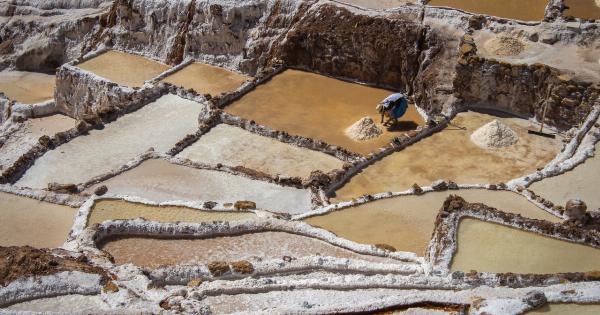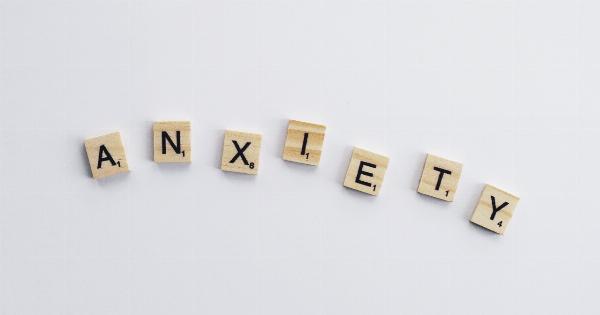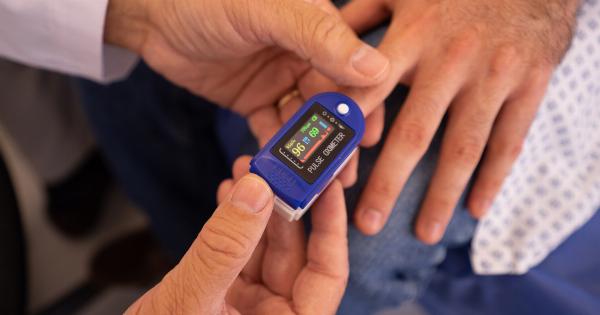Salt, or sodium chloride, is a commonly used ingredient for enhancing the flavor of food. While a moderate amount of salt is necessary for our body functions, excessive salt consumption can have dire consequences for our health.
In this article, we will explore the unforeseen consequences of high salt consumption on various aspects of our well-being.
The Role of Salt in our Body
Salt plays a crucial role in our body as it helps maintain the balance of fluids, enables proper muscle and nerve function, and supports the absorption of various nutrients.
However, the body requires only a small amount of sodium each day, and exceeding the recommended intake can lead to detrimental effects.
Impact on Blood Pressure
One of the most well-known consequences of high salt consumption is its impact on blood pressure. When we consume excessive amounts of salt, our body retains more water to dilute the sodium.
This leads to an increase in blood volume, which forces the heart to work harder to circulate the blood. Consequently, this can result in high blood pressure, also known as hypertension.
Cardiovascular Diseases
Continuous high blood pressure due to excessive salt intake can significantly increase the risk of developing cardiovascular diseases.
Over time, the strain on the heart can weaken it and lead to conditions such as heart attack, stroke, and heart failure. Moreover, high sodium levels can cause damage to the blood vessels, further increasing the chances of developing various heart-related conditions.
Effect on Kidney Function
Salt is primarily processed and excreted by the kidneys. However, when salt consumption is excessive, it can put a strain on these vital organs.
The increased workload on the kidneys can lead to decreased efficiency in filtering waste products and toxins from the blood. Over time, this can contribute to the development of kidney diseases and impair overall kidney function.
Osteoporosis and Bone Health
High salt intake has been linked to negative effects on bone health, particularly in older adults. Excessive sodium can increase the amount of calcium excreted in the urine, leading to reduced calcium levels in the body.
This calcium loss weakens bones, making them more prone to fractures and osteoporosis. Therefore, reducing salt consumption is crucial for maintaining strong and healthy bones.
Dehydration and Thirst
Consuming too much salt can cause dehydration in the body. As sodium retains water, an excess of it can lead to the body losing essential fluids. This can result in symptoms like excessive thirst, dry mouth, reduced urine output, and dizziness.
Chronic dehydration can also impair overall bodily functions and have an adverse impact on our general well-being.
Influence on Brain Health
Studies have shown a link between high salt consumption and cognitive impairment. Excessive salt can disrupt the delicate balance of electrolytes in the brain, affecting neural function.
This disruption may contribute to a decline in cognitive abilities, including memory and learning. Adopting a low-sodium diet can play a role in maintaining brain health and reducing the risk of cognitive decline.
Adverse Effects on Digestive System
Excess salt consumption has been associated with various digestive issues. Firstly, high sodium levels can increase the risk of gastric ulcers by promoting the growth of Helicobacter pylori bacteria.
Additionally, salt can lead to water retention in the digestive system, causing bloating, discomfort, and disrupted bowel movements. Reducing salt intake can help alleviate these digestive issues.
Impact on Skin Health
High salt intake can negatively affect the health and appearance of our skin. Excessive sodium can cause water retention and puffiness, which is particularly noticeable around the eyes and face. This can make a person appear tired and aged.
Moreover, salt can deplete the skin of its natural moisture, leading to dryness and irritation. Reducing salt consumption can promote healthier, more radiant skin.
Association with Autoimmune Diseases
Emerging research suggests that high salt consumption may be linked to autoimmune diseases such as rheumatoid arthritis, multiple sclerosis, and psoriasis.
The exact mechanisms behind this relationship are still being studied, but it is believed that excessive salt can trigger immune responses and inflammation, contributing to the onset or exacerbation of these autoimmune conditions.
Conclusion
While salt is an essential component in our diet, it is crucial to consume it in moderation.
Excessive salt consumption can lead to a myriad of unforeseen consequences, ranging from high blood pressure and cardiovascular diseases to impaired kidney function and autoimmune conditions. By being mindful of our sodium intake and adopting a balanced diet, we can ensure better overall health and well-being.































